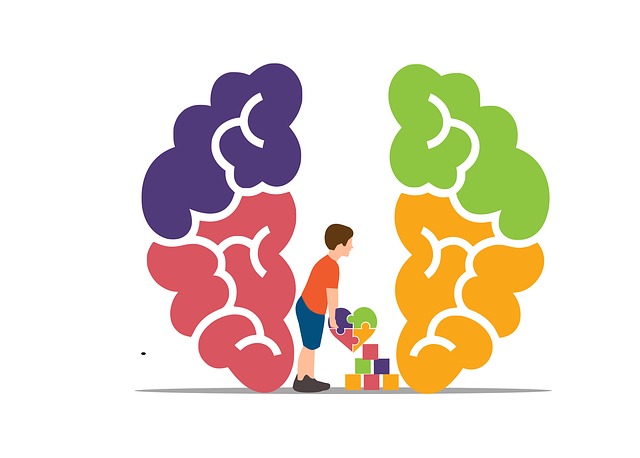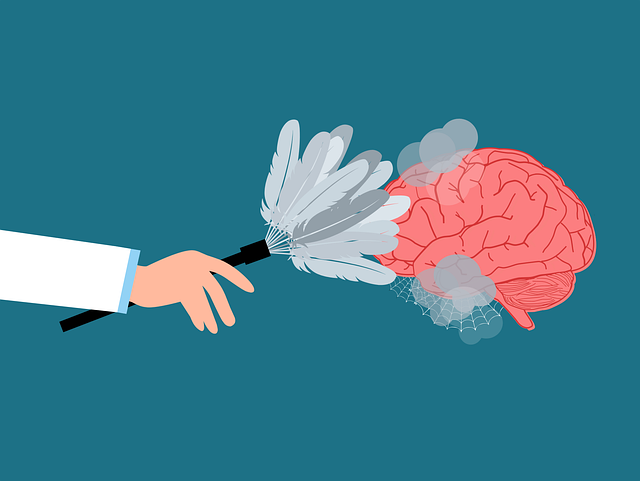Arvada Psychological Testing & Therapy offers crisis intervention services with a focus on tailored, evidence-based approaches. Their experts combine therapeutic techniques to de-escalate acute distress and promote resilience, empowering clients with positive thinking exercises and mental wellness journaling. Through comprehensive psychological testing, they address conditions like depression, anxiety, trauma, and burnout, emphasizing holistic care for lasting emotional well-being. Open dialogue, cultural sensitivity, and a supportive environment are key strategies, ensuring personalized, inclusive care that enhances self-esteem during challenging times. Post-crisis follow-up and prevention techniques further support clients in healing, developing emotional regulation skills, and building stability.
In times of crisis, effective intervention strategies are vital to support individuals and communities. This comprehensive guide explores key aspects of crisis intervention, focusing on Arvada psychological testing and therapy as essential tools for navigating turbulent situations. From understanding the fundamentals of crisis intervention to implementing communication strategies and fostering supportive environments, this article provides valuable insights. Additionally, it delves into post-crisis follow-up and prevention techniques, emphasizing the long-term benefits of effective support in Arvada.
- Understanding Crisis Intervention: A Brief Overview
- The Role of Psychological Testing in Arvada
- Effective Communication Strategies During Crises
- Creating a Supportive Environment for Therapy
- Post-Crisis Follow-Up and Prevention Techniques
Understanding Crisis Intervention: A Brief Overview

Crisis intervention strategies are crucial for navigating life’s unexpected challenges. They provide immediate support and guidance to individuals facing acute distress, aiming to de-escalate situations and foster resilience. At Arvada Psychological Testing & Therapy, we recognize that every crisis is unique, requiring tailored interventions. Our experts offer evidence-based approaches, combining techniques from various therapeutic modalities to address the root causes underlying the crisis.
Through a comprehensive understanding of the individual’s psychological landscape, we facilitate positive thinking and mental wellness journaling exercises, empowering clients to develop coping mechanisms and build emotional resilience. By integrating these strategies into their lives, individuals can better prevent depression and navigate future challenges with enhanced coping skills.
The Role of Psychological Testing in Arvada

In Arvada, psychological testing plays a pivotal role in crisis intervention strategies. These comprehensive assessments help identify underlying mental health issues and emotional distress that may be at the root of a person’s crisis. By utilizing evidence-based tools, therapists and counselors can gain valuable insights into an individual’s thoughts, feelings, and behaviors, enabling them to tailor interventions for optimal support. Psychological testing in Arvada encompasses a wide range of techniques, from structured interviews to neuropsychological evaluations, designed to address various challenges such as depression, anxiety, trauma, and burnout—especially pertinent in the context of Burnout Prevention Strategies for Healthcare Providers.
Arvada’s psychological testing therapy focuses not only on diagnosing but also on fostering resilience and promoting Positive Thinking. Through Stress Management techniques integrated into the testing process, individuals can learn coping mechanisms to better navigate life’s challenges. This holistic approach ensures that those facing crises receive not just a temporary band-aid solution but a lasting framework for emotional well-being, empowering them to lead fulfilling lives despite adverse circumstances.
Effective Communication Strategies During Crises

In crisis intervention, effective communication is key to building trust and offering immediate support. At Arvada Psychological Testing Therapy, we emphasize open dialogue where individuals feel safe to express their feelings and fears. Active listening, a powerful tool, involves giving undivided attention, paraphrasing, and validating the person’s emotions. This not only ensures understanding but also shows empathy, fostering a sense of security during turbulent times.
Additionally, cultural sensitivity in mental healthcare practice is vital. Our therapists are trained to navigate diverse backgrounds, incorporating relevant burnout prevention strategies for healthcare providers tailored to individual needs. By promoting self-esteem improvement and understanding, we create an inclusive environment, ensuring that every client receives personalized care. These communication strategies form the backbone of our crisis intervention guidance, aiming to provide effective solutions in challenging situations.
Creating a Supportive Environment for Therapy

In the context of crisis intervention, creating a supportive environment for therapy is paramount. This involves fostering an atmosphere where individuals feel safe to express their emotions and fears without judgment. At Arvada Psychological Testing Therapy, we prioritize understanding and empathy as cornerstones of our approach. Our therapists are trained to listen actively and create a confidential space, encouraging clients to share their experiences openly. This non-judgmental attitude is crucial in reducing the stigma often associated with mental illness, promoting honesty and ultimately enhancing the therapeutic process.
Furthermore, Trauma Support Services play a significant role in building this supportive environment. By incorporating strategies that facilitate emotional regulation, our team aims to help clients manage acute distress and prevent future crises. Through tailored interventions, we support individuals in developing coping mechanisms that promote resilience and self-efficacy. The ultimate goal is to empower clients to navigate life’s challenges with enhanced emotional well-being, ensuring they have the tools necessary to maintain stability both during and after therapy sessions.
Post-Crisis Follow-Up and Prevention Techniques

After a crisis has passed, it’s crucial to implement effective post-crisis follow-up and prevention techniques. Arvada Psychological Testing Therapy professionals can play a vital role in guiding individuals or communities toward healing and resilience. They offer tailored support aimed at mitigating any lasting negative impacts of the crisis event(s). This process often involves intensive therapy sessions that help clients develop emotional regulation skills, crucial for managing stress and preventing future crises.
Additionally, these follow-up strategies may incorporate stress reduction methods and emotional intelligence training. By equipping individuals with practical tools to cope with adversity, these techniques foster a sense of stability and promote overall well-being. Such proactive measures not only help in recovering from the immediate crisis but also build a more robust foundation for dealing with potential future challenges.
Crisis intervention strategies are vital tools in helping individuals navigate challenging situations. By understanding the key components discussed in this article, such as psychological testing, effective communication, and supportive environments, professionals in Arvada can provide more effective therapy and support. Integrating post-crisis follow-up and prevention techniques further ensures a holistic approach to help folks recover and thrive after traumatic events. Remember that with the right guidance, crisis intervention can be a game-changer in the lives of those facing emotional turmoil.














